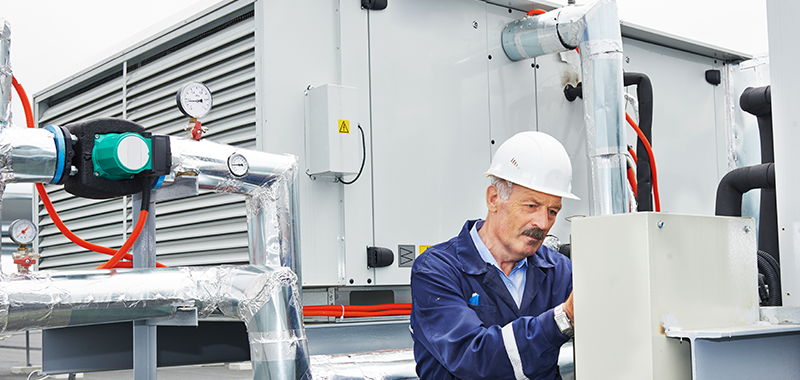There are some situations, such as open flames and running engines, that obviously require the right ventilation in your shop. But those circumstances are just the tip of the iceberg.
Many other industrial scenarios demand special attention to air flow and air quality. It’s frankly something that needs to be on your mind consistently to make sure everyone in your shop, from employees to customers and other visitors, stays safe and healthy.
Where Does Air Pollution Come From?
Indoor air pollutants can come from a variety of sources, including the building’s location, its design, the design and maintenance of its HVAC and other systems, exhaust ventilation within the building, renovations, building materials, furnishings, maintenance procedures and actions of people in the building.

Most of these are things to consider when choosing a new site or building a new location that allow you to position your operation for successful management of air quality. But several of them are particularly important in an industrial context:
- Exhaust ventilation within the building: Maintenance shops are a vital area to equip with adequate ventilation. Details depend on the specific activities in your shop, but inadequate air movement in a shop is a recipe for problems.
- Renovations: Renovation activities such as painting or sanding can create pollutants that need addressed.
- Maintenance procedures: Cleaning products and other items used to maintain your facility on a regular basis often call for ventilation.
Many MRO use cases can lead to air quality issues, including:
- Abrasives and Cutting Tools: Many uses of abrasives and cutting tools generate fragments that can become airborne, affecting air quality.
- Chemicals: Many chemicals hurt air quality or can create airborne hazards. Refer to the label and/or Safety Data Sheet for the products being used for instructions.
- Paint: Paints contain materials such as solvents and propellants that should not be inhaled. Again, refer to the label and/or Safety Data Sheet.
- Welding: Welding produces gases and fumes that can be hazardous if ingested.
Why Does Air Pollution Matter?
The Environmental Protection Agency reports indoor air quality problems can lead to both immediate and long-term health effects.
Depending on the pollutant, immediate effects can occur after a single exposure or repeated exposures. Some of these can include irritation of the eyes, nose and throat; headaches; dizziness and fatigue. Long-term effects can include serious conditions such as respiratory diseases, heart disease and cancer.
What Can I Do to Ensure Good Air Quality?
According to the EPA, the most effective way to improve air quality is removing or reducing sources of pollution. When that isn’t enough, it’s time to look at ways to improve ventilation.
Buildings are ventilated by three processes:
- Infiltration: Air entering through various openings and cracks
- Natural ventilation: Air entering through open windows and doors
- Mechanical ventilation: Air entering using things such as fans and more complex air handling systems
The Occupational Safety and Health Administration says industrial ventilation is used to control airborne contaminants, prevent fire and explosions, and control temperature, humidity and odors. There are many variables involved in designing a ventilation system that will meet the needs of your operation. The key is consulting with a qualified HVAC expert or industrial hygienist.
Although the need to control air quality is more obvious in industrial worksites (both indoors and outdoors), don’t forget ventilation-related concerns in office areas and other commercial or institutional spaces. The EPA lists “exposure to indoor air pollutants in nonindustrial environments” as a “significant health threat.”
Kimball Midwest doesn’t provide fans or other ventilation equipment, but our trained Reps can be part of the team that helps make sure your shop is safe. 
.png?width=131&height=58&name=image%20(40).png)
